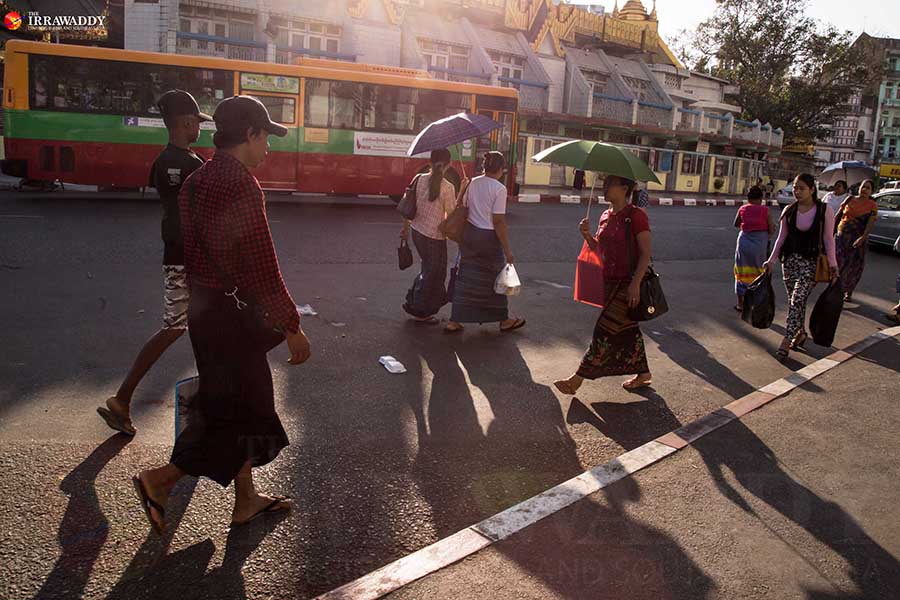Extreme heat has killed at least one person in Myanmar as hot-season temperatures climb because of El Nino.
A Yangon charity said it treated more than 100 people who lost consciousness during the first week of April. Males in their 40s were disproportionally affected.
A man in his 50s died near Shwedagon Pagoda on Sunday morning while cycling, according to the charity.
“He had heart problems. He cycled in the scorching sun and fell off his bike after sweating heavily. We sent him to hospital but he was dead on arrival,” a charitable worker said.
A man in his 30s lost consciousness after getting off a bus in Ahlone Township on April 4 and was sent to Yangon General Hospital. A man in his 50s fainted while waiting for a bus in Mingalar Taung Nyunt Township.
A man in his 20s passed out in Magwe city on April 4.
The Ministry of Humanitarian Affairs and Disaster Management of the civilian National Unity Government this week warned about heatwaves.
The junta’s Department of Meteorology and Hydrology said daytime temperatures were 3-4°C higher than average in Naypyitaw, Sagaing, Mandalay and Magwe regions and northern and eastern Shan State.
Temperatures hit 47°C in Chauk Township in Mandalay Region, 45°C in Nyaung-U and 44°C in Myingyan, and Minbu and Sinphyukyun in Magwe Region, it reported.

Sagaing Region civilians displaced by conflict are suffering in the heat. Mone Hla villagers in Khin-U Township have reported health problems and water shortages since their homes were torched by junta soldiers on March 28.
“We lost our homes and are staying in makeshift huts and in the shade of trees. It is unbearably hot. We struggle to find water. Elderly people faint and need medical care,” said a resident.
Dr Su Taung Pyae of a free online clinic run by the NUG’s health ministry said: “The heat can cause dry skin, profuse sweating and elevated body temperature. It can be fatal.”
People with diabetes, high blood pressure and heart problems are particularly vulnerable.
Rolling blackouts in Yangon mean power is normally only available for about four hours at a time.
“We fan ourselves when there is no electricity. It is difficult to sleep. The power cuts are getting longer,” said a Thaketa resident.

















